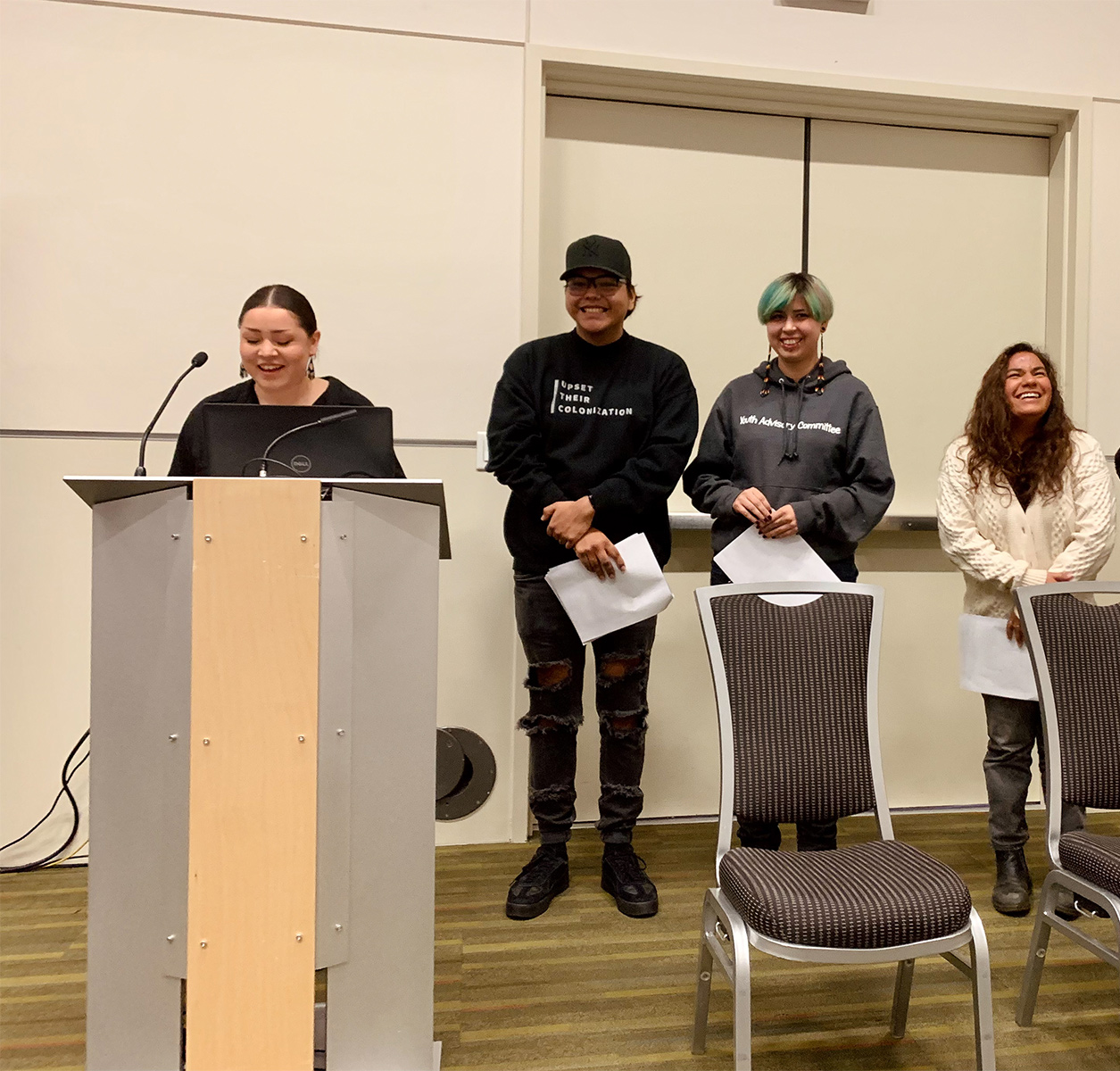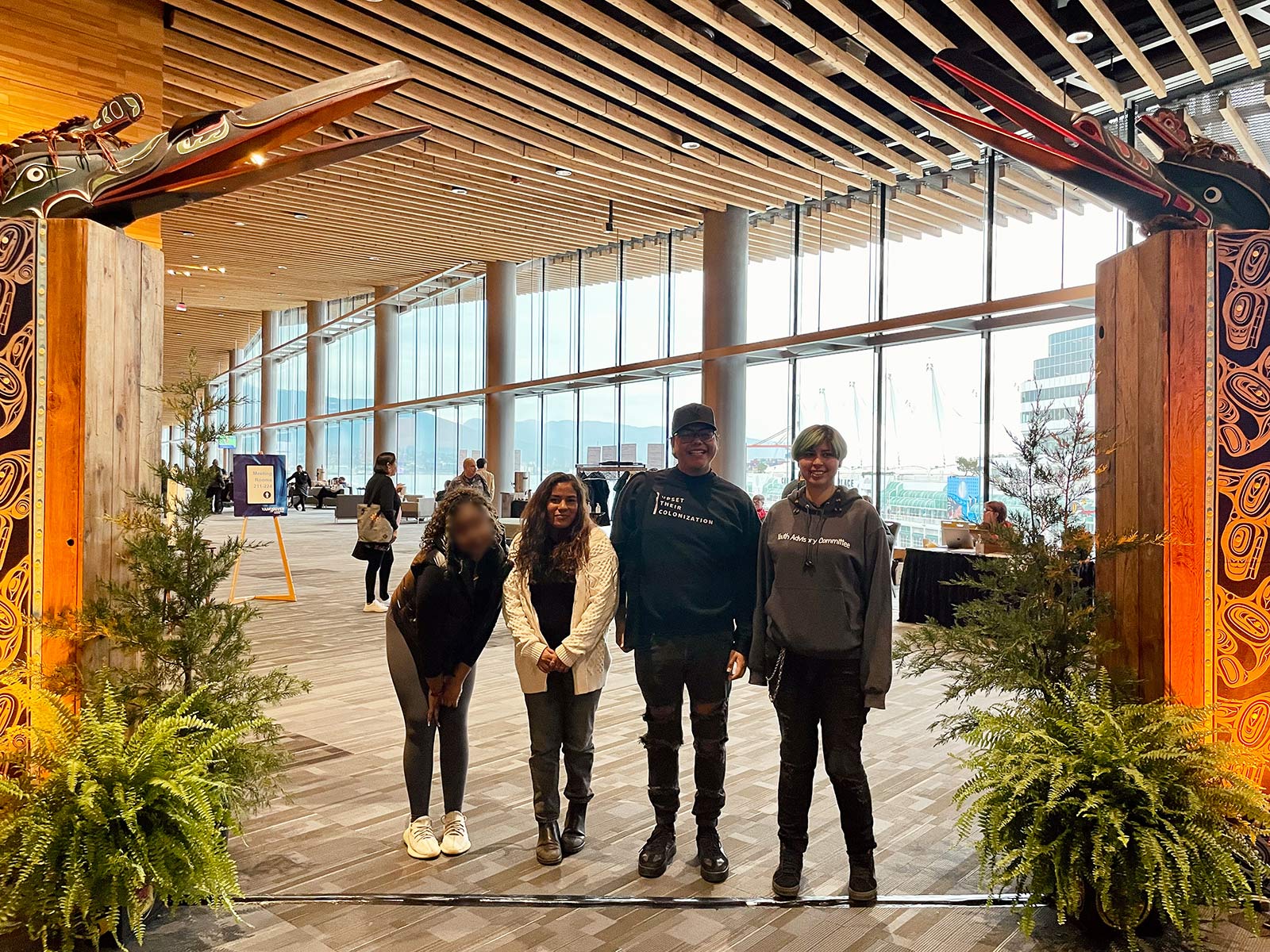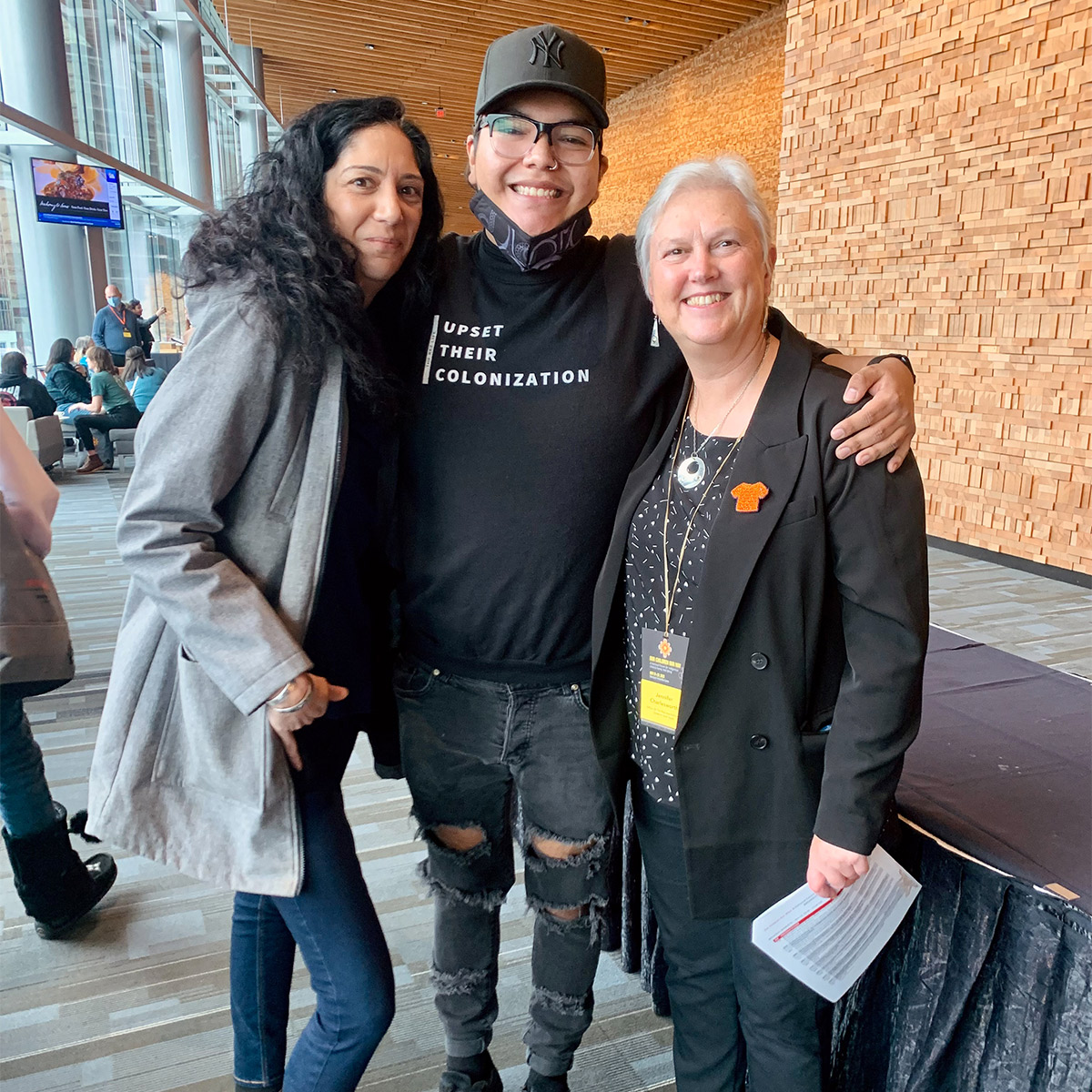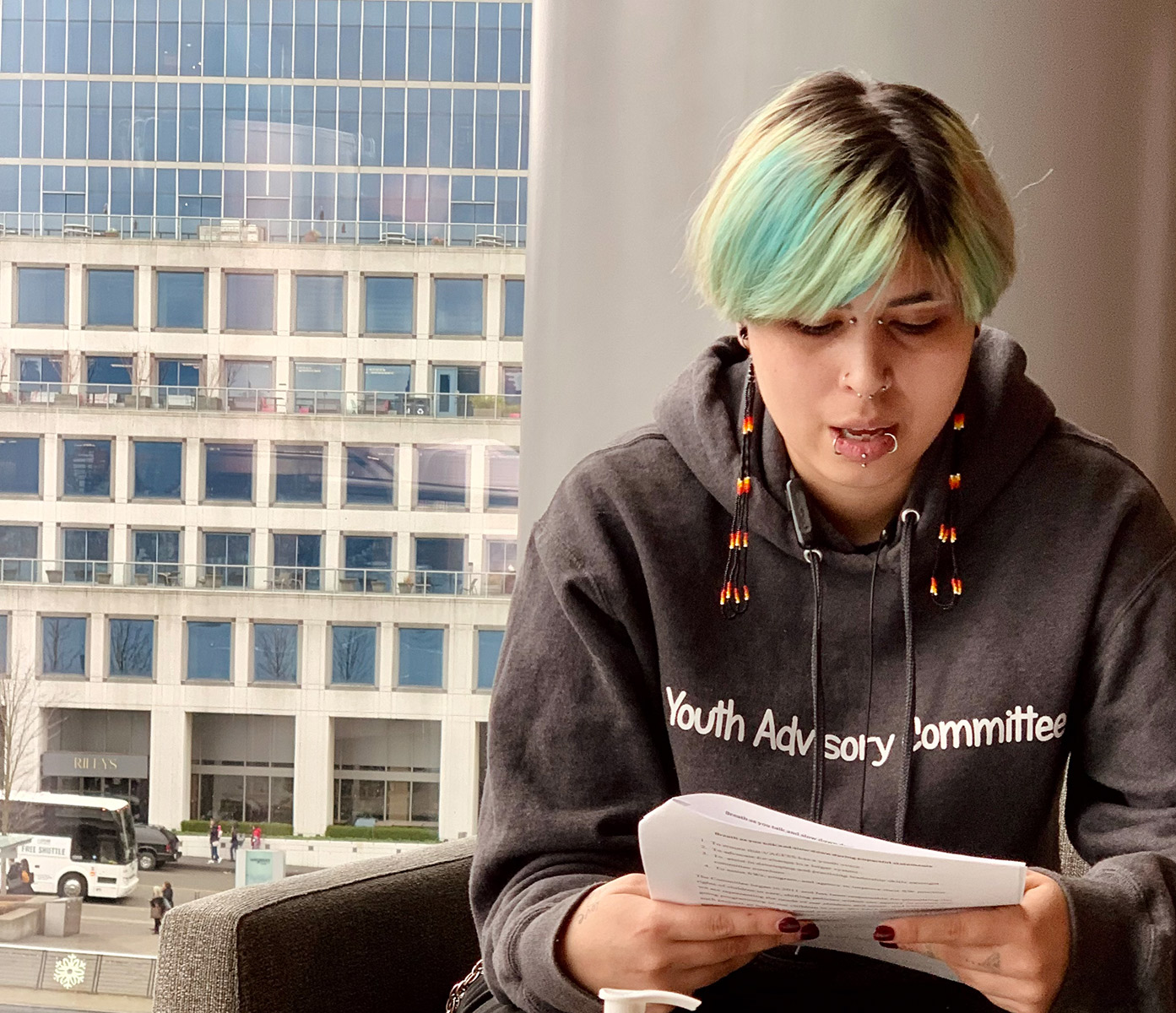The Youth Advisory Committee shares some best practices for those who work in child welfare, such as engaging youth in their care plans, providing a platform for advocacy, and family finding and cultural connections. These practices help shift from oppressive systemic interventions to empowerment and healing.
Our Youth Advisory Committee (YAC) recently presented at the national conference, Our Children Our Way: A Forum for Indigenous Child & Family Well-Being, a platform to share best practices, operational policies, prevention services, and community development approaches in Indigenous child welfare.
YAC members Amber Moon, Teka DesJarlais, Tiana Muskego, Dori Pelkey and Justice shared the following recommendations.
Recommendations on Reconciliation in Child Welfare
Relationships/Relationship-based social work.
Being in relationship can create change, belonging, and safety. This strategy reflects Indigenous values, creates community, and is the most effective way of being heard.
Youth in/from care also need to be in relationship with each other.
Having healthy relationships can be challenging when you are a youth in care. Connecting with other youth with this shared experience can help form identity and provide a sense of community. These connections are especially valuable when aging into community and navigating challenging moments in life.
How do you come into relationship?
“When we have guests, for example, we sit in circle together,” says Teka. “This approach supports the process of learning about one another and the personal journeys with advocacy, bringing people closer together and creating community.”


Engage youth in their care plan.
“Nothing for us without us” is the concept that YAC was founded on.
Youth continue to report that adult opinions about their care are considered more closely than their own. Youths’ voices should be at the center of a system designed to support them.
Every child and youth should be a part of the advocacy that benefits them and be involved in creating the best plans for them. Failure to do so takes away their power and contributes to oppression.
Provide a platform for advocacy, change, and leadership.
Youth should have a voice not only in their own care but in the larger care system designed to provide for them.
Reconciliation involves acknowledging history, understanding what went wrong, being part of the dialogue, and shifting directions.
Youth in/from care should continue to be invited to speak at events to honour their lived experience and wisdom. This way, youth are positioned as partners in future programming and the dialogue is shifted from oppressive systemic interventions to empowerment and healing.
Other opportunities include a youth advisory group. These opportunities help in developing skills and learning how to use one’s voice effectively.


Prioritize family finding and cultural connections.
Indigenous children and youth in care in urban areas are at risk of losing their histories. Not only their individual histories but also those of their families and communities.
It’s often the hardworking, passionate social workers trying to prioritize family-finding and cultural connections.
While others must do their own research, trying to piece together the often fragmented and broken ties of their past.
Clearly, this is not acceptable.
For urban Indigenous children and youth to develop a vision of where they are going, it is important to understand where they come from.
Reconciliation is having a system that is grounded in, and representative of, the children’s and youths’ cultures, as well as a system that honours their histories and cultures.
Be an ally.
It can sometimes be a burden to explain one’s cultural heritage and life experiences. If you are non-Indigenous, think of how you can demonstrate that you are an ally to the Indigenous children and youth you support.
Engage the child with genuine curiosity and enthusiasm.
“For instance,” explains Dori, “start with ‘I would love to learn more about your understanding of culture and what it means for you to be an urban Indigenous young person.’”
Youths’ inherent sense of pride could be reflected in every interaction due to this shift in the conversation.
This does not necessarily mean understanding the histories of individual communities. It means understanding the intergenerational trauma, and relationships to family, culture and community, even if this has been broken by systemic interventions.


Successful youth engagement practices.
- Funding. Poverty is a real issue and a reality for many former youths in care. Provide honorariums for members of your youth advisory for their participation in meetings and events. If the social workers on the committee get paid for their time, so should the youth.
- Engage every child/youth in their learning by meeting them where they are. This means ensuring that the language and concepts are accessible. Young people in care sometimes experience disrupted education and may be unfamiliar with acronyms or jargon. Take time to explain concepts to allow genuine and meaningful participation.
- Have fun. The importance of this work cannot be overstated, but laughter and enjoyment are also essential. Former youth in care face many challenges, such as low-paying jobs, issues of childhood trauma, housing, etc. The laughter, fun opportunities, amazing teamwork, and the knowledge they’re making a difference for future generations have kept many members committed to YAC.
- Relationships matter. It has been widely documented the importance of relationship-based social work, but it is equally important that it be continued in a committee setting as well. YAC is surrounded by social workers who are truly concerned about youth. They make an effort to learn about each youth individually and keep in touch between YAC events and meetings.
- Start with small wins. The VACFSS Youth Advisory Committee initially participated in projects that had an immediate impact, such as changing agency policies. By doing so, the YAC celebrated its success quickly and gained confidence. In recent years, YAC has engaged in deeper, longer-term projects, such as advocacy with the National Council of Youth in Care Advocates.











